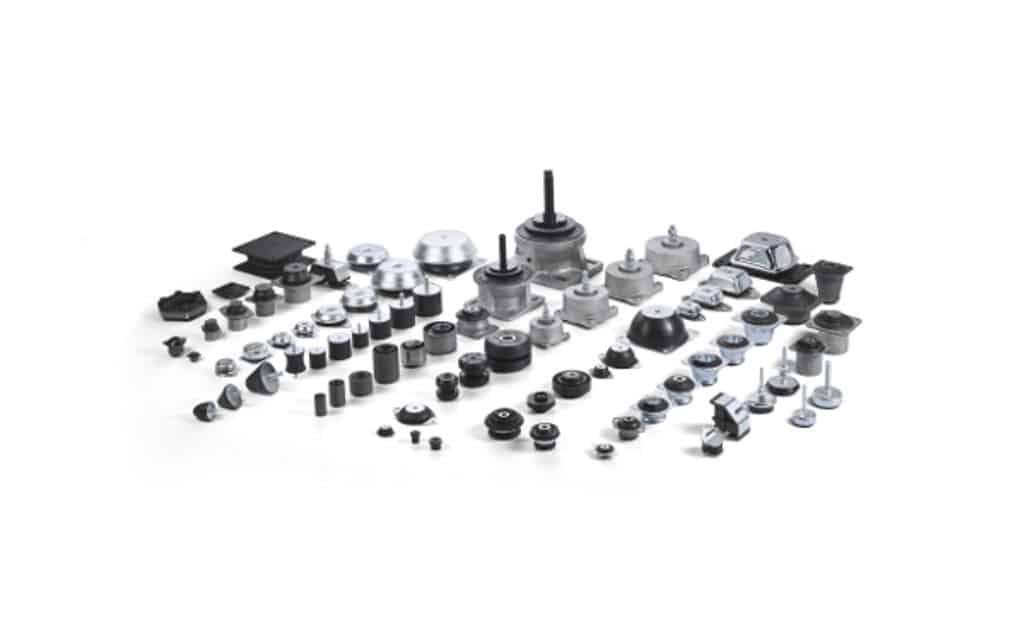Advancements in engineering have allowed modern machinery to be powerful and way more capable than ever before. As machine systems get bigger and powerful, the number of moving components in them increases, thus also increasing the chances of causing damages to the machine.
Vibrations are one major issue that causes components in machinery to damage faster. Moving components within machines face imbalance and increased wear when subjected to vibrations. There are several ways to reduce the problems caused by vibrations on machine equipment and the use of vibration isolators is one among them.
What are Vibration Isolators?
Vibration isolators are systems that isolate any machinery or equipment from the source of vibration so that the components within the machinery/equipment is not affected by the vibration.
There are different types of vibration isolation systems such as passive isolation, semi-active isolation, and active isolation whose usage depends on the type of machinery and scenario.
Tips to Pick the Best Vibration Isolators
1. Study the Case of Machine Vibration Carefully
Before implementing a vibration isolator system on a piece of machinery, it is very important that you analyze the characteristics of the vibration caused. There are several tools that you can use to find the details of vibration caused on your machine, such as its frequency.
If you are looking for an easy way to study machine vibration, then the Vibration Isolator Pro application is all you need. Vibration Isolator Pro is an iOS/Android application that utilizes the built-in accelerometer on your smartphone or tablet to identify vibration frequencies on a surface, thus helping you identify the vibration frequency that you should focus on and resolve.
Moreover, after calculating the vibration frequency, you can also specify the details of isolators you are looking for along with its application to get suggestions on vibration isolators that meet your requirements.
2. Consider the Environment Where the Isolators Are to be Installed
The environment in which the machine operates is another factor to consider while planning to install an isolator. This is because not all isolators function efficiently in all environments and parameters like temperature can cause isolation systems to function ineffectively.
Other parameters such as the altitude where the machine works, humidity, atmospheric pressure, etc. can also affect the functioning and efficiency of an isolator. You can either pick an isolator that matches the environment where it is supposed to function or make changes to the materials used or add some other protective materials into the isolator system to ensure better functioning.
3. Calculate the Weight of the Machinery and Assign Isolators Accordingly
To make sure that the isolators function as expected, it is necessary that the weight of the machinery is calculated accurately. Once calculated, you need to also ensure that the weight is evenly distributed on the isolation system.
Apart from the actual weight of the machine, it is also necessary to consider any additional weights the machine might have to hold during its functioning. If the isolation system has to bear a higher weight load than its capacity, it will not be able to function as expected.
4. Consider the Service Requirements of the Isolator
Just like any other machinery or equipment, even vibration isolators have periodical maintenance requirements. The number of functioning hours and the load that the system bears are two of the crucial factors in determining the life of an isolator.
Therefore, while picking an isolator for your machine, it is necessary that you consider the service requirements of the vibration isolator and pick a system that matches your requirements.
Final Words Even though this article featured some crucial tips to ensure that you purchase the right type of isolator for your machinery, deciding on a vibration isolation system requires much more complex calculations. Therefore, it is essential that you also consider an expert to assess your machine requirements and pick a vibration isolator that works best for the equipment.



